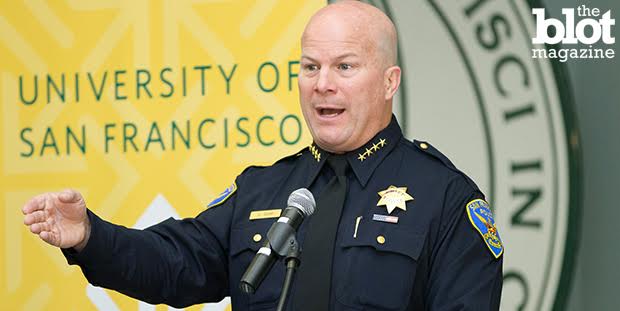
The San Francisco Police Department’s crime lab will begin testing hundreds of backlogged forensic rape kits, positioning the city to become one of a handful across the country to have eliminated its logjam of untested kits.
The move, announced Tuesday by the city’s chief of police, reverses the agency’s decision not to cooperate with other city offices in clearing the backlog of rape kits, most of which were gathered before 2003. It also comes after the city’s mayor, Edwin Lee, refused to allocate hundreds of thousands of dollars to the San Francisco District Attorney’s office for the testing of the kits and to continue funding an investigation into law enforcement abuses.
In an interview with the San Francisco Chronicle, Police Chief Greg Suhr said his crime lab was “maxed out” and did not know how many rape kits still need to be tested. Suhr, whose department refused to cooperate with the DA’s office in securing twin $2 million grants for the testing of the kits, claimed forensic examiners wouldn’t have the time to test the kits even if the grants had been approved.
Read more: San Fran Mayor Plays Favorites with Police, Won’t Fund Misconduct Investigations
But in a spectacular reversal, Suhr said Tuesday that he’d found money in the current police budget to test the kits, and that his crime lab would allocate resources to clearing the backlog. He also said his agency had “hand-counted” the kits and found that over 400 still needed to be tested, the Chronicle reported.
“I care about the issue,” Suhr told the newspaper, saying he had been “bad at explaining it” and assuring that testing the kits was “a huge priority.”
A rape kit contains evidence collected by a medical examiner following an alleged sexual assault. The kits typically consist of bodily fluid, tissue, hair samples, clothing, photographs and other documentation. The kits can be an important in a prosecution against a suspected rapist because they are designed to establish a chain of custody so that the evidence can be entered in a criminal proceeding.
Read more: San Fran Police Sued Over Killing of Immigrant
But the kits are only effective if they are tested against DNA and other databases by a forensic examiner. Some cities, including San Francisco, have cited a lack of resources and funding for their logjam of untested rape kits; advocacy groups sometimes argue that the backlogs are the result of police failing to prioritize alleged sexual assaults.
Maxwell Szabo, a spokesperson for San Francisco District Attorney George Gascón, said in a statement that he was pleased the rape kits would be tested going forward, saying “the victims of these crimes deserve as much.”
The police and the district attorney’s office have had a contentious relationship over the last few years, with the mayor’s office showing favoritism to the former. Lee’s announcement of $30 million in funding for the police over the next two years and subsequent refusal to fund a $300,000 investigation by the prosecutor’s office into alleged police abuses and mismanagement was the latest example of a frosty relationship between the agencies responsible for carrying out justice.
For months, the district attorney’s office have been examining around 3,000 cases — 1,600 prosecutions and another 1,400 arrests that were never prosecuted — following allegations of police misconduct and breaches of protocol at the city’s crime lab. Mayor Lee recently told KQED-FM that he didn’t feel it was important to continue funding the investigation, encouraging both the police department and the prosecutor’s office to “work closely together” to determine exactly how many cases would be reviewed.
Matthew Keys is a contributing journalist for TheBlot Magazine.





